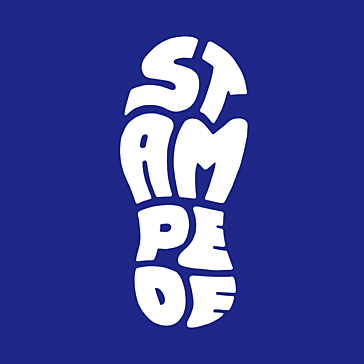3.75
IXUP Review
Discover our IXUP review. Assess its features, security focus, pricing plans, support quality, updates, and value for money. Find out if IXUP fits.

Introduction to IXUP
Welcome to our detailed IXUP review, exploring a platform built for secure data collaboration. IXUP enables organizations to analyse combined datasets without exposing sensitive raw information, fostering insights while upholding strict privacy standards. Understanding IXUP is key to leveraging collaborative analytics securely. This overview provides a foundation before we dive deeper into its functionalities and performance. Getting started with IXUP involves grasping its core principles of encrypted analytics. This review unpacks the IXUP basics, guiding you through its operational framework and highlighting the significant benefits of IXUP. We examine how it facilitates secure data sharing and computation, unlocking new possibilities for data-driven decision-making across various sectors while maintaining confidentiality.
Comprehensive overview and target audience
IXUP positions itself as a secure data collaboration platform. It enables multiple parties to analyze combined datasets without ever exposing or compromising the raw, sensitive information belonging to each participant. This is achieved through advanced cryptographic techniques, specifically secure multi party computation. The platform facilitates insights from pooled data while ensuring privacy and compliance, a critical need in today’s data landscape.
The primary target audience for IXUP includes organizations that possess valuable datasets but face regulatory, commercial, or ethical barriers to sharing them directly. This often involves sectors like:
- Healthcare and life sciences: For collaborative research on patient data without breaching privacy.
- Financial services: Enabling fraud detection or risk assessment across institutions.
- Government agencies: Sharing intelligence or demographic data securely for public benefit.
- Retail and marketing: Collaborating on customer insights without sharing customer lists directly.
Essentially, any group needing to unlock collective intelligence from sensitive, siloed information finds a potential solution in IXUP. The platform’s robust “IXUP security features” are central to its appeal, employing encryption and secure enclave technologies to keep underlying data confidential throughout the analytics process. This focus on security underpins the trust required for such collaborations.
Regarding “IXUP value for money”, the platform offers sophisticated capabilities that can generate significant ROI by enabling previously impossible data partnerships and insights. While a detailed “IXUP pricing comparison” is necessary for a full picture, the potential value derived from secure collaboration often justifies the investment for organizations dealing with high stakes data. Furthermore, IXUP demonstrates commitment through regular “IXUP updates and new features”, ensuring the platform stays ahead of evolving security threats and analytical needs. Users are also supported through various channels, with “IXUP support and training resources” available to help organizations onboard and maximize their use of the platform effectively. This combination of advanced technology, security focus, and ongoing development caters specifically to organizations prioritizing secure, privacy preserving data analytics and collaboration.
User experience and functional capabilities
Navigating the IXUP platform reveals a focus on secure functionality over elaborate aesthetics. Initial IXUP user experience insights suggest that while the interface is professional and task oriented, users new to secure multi party computation concepts might face a learning curve. Understanding the underlying principles of how IXUP protects data during analysis is crucial for effective operation. The platform guides users through setting up secure “analytic sandboxes” where data from multiple parties can be combined and interrogated without revealing the raw inputs.
Learning how to use IXUP typically involves several key steps. First, organizations define the specific analytical query or model they wish to run collaboratively. Second, participating parties prepare and ingest their respective datasets into the secure IXUP environment. Third, the computation is configured and executed within the platform’s secure enclaves. Finally, the aggregated results, devoid of sensitive individual data points, are made available. While the process is logically structured, the technical nuances, especially around data preparation and query definition within a privacy preserving framework, require careful attention. An IXUP implementation guide is often essential, detailing the prerequisites, setup procedures, and necessary configurations for successful deployment, ensuring all security protocols are correctly established.
Despite its powerful capabilities, users might encounter certain hurdles. Common problems with IXUP can include the complexity of initial setup and configuration, particularly ensuring data schemas align sufficiently for meaningful joint analysis without compromising privacy rules. Performance tuning for complex cryptographic computations can also be challenging, requiring expertise. Furthermore, troubleshooting unexpected results requires a different approach than traditional analytics, given the encrypted nature of the underlying data. Careful planning and adherence to provided documentation are key to mitigating these issues.
Integrating IXUP with other tools already present in an organization’s data ecosystem is a frequent consideration. While IXUP provides a self contained secure environment, organizations often need to feed data into it from existing databases or data warehouses and potentially export aggregated results to BI tools or reporting dashboards. APIs and specific integration points facilitate this, though the level of seamlessness can vary depending on the specific tools involved. The platform continues to evolve; regular IXUP updates and new features often enhance these integration capabilities, alongside improvements to core algorithms, security protocols, and usability based on user feedback.
To maximize the platform’s potential, adhering to best practices for IXUP is vital. These include:
- Clearly defining the scope and objectives of the collaboration upfront.
- Ensuring all participating parties have a solid understanding of the data privacy mechanisms involved.
- Investing time in proper data preparation and schema alignment before initiating computations.
- Starting with simpler analytical queries before tackling highly complex models.
- Leveraging IXUP support and training resources effectively during onboarding and ongoing use.
- Staying informed about IXUP updates and new features to continuously optimize security and analytical workflows.
By following these guidelines, organizations can harness IXUP’s unique capabilities for secure data collaboration effectively, unlocking valuable insights while maintaining the highest standards of data privacy and security.
Who should be using IXUP
IXUP is designed for organizations that possess valuable, sensitive datasets but are restricted from sharing this raw information directly due to privacy regulations, commercial sensitivities, or ethical considerations. If your organization needs to gain insights by combining its data with that of partners, competitors, or other entities without exposing the underlying confidential details, IXUP offers a compelling solution. It directly addresses the challenge of unlocking collective intelligence trapped within data silos, enabling secure collaboration where traditional data sharing is impossible or impractical.
The platform finds its strongest resonance in sectors handling highly sensitive information. Consider these examples as a typical IXUP use case scenario:
- Healthcare and life science institutions aiming to conduct joint research on patient outcomes without violating strict patient confidentiality rules.
- Financial service providers collaborating across institutional boundaries to detect sophisticated fraud patterns or assess systemic risks more accurately.
- Government bodies requiring secure methods to share intelligence or aggregate demographic data for policy making and public safety initiatives.
- Retailers or marketing firms seeking to build richer customer profiles through partnerships, but needing to protect their individual customer lists fiercely.
Essentially, any entity facing barriers to data pooling yet recognizing the immense value in combined analysis should evaluate IXUP. This includes organizations prioritizing robust data governance and compliance alongside analytical advancement.
Beyond specific sectors, IXUP is best suited for organizations ready to embrace advanced cryptographic techniques like secure multi party computation. Users should anticipate a learning curve, particularly if the concepts are new. The ideal user understands that leveraging this powerful technology effectively requires careful planning, data preparation, and a commitment to understanding its operational framework. Successfully implementing IXUP often involves dedicated data science and IT teams capable of managing the technical nuances of secure computations and integration. Adherence to the “Best practices for IXUP”, such as defining clear objectives and ensuring meticulous data handling, is not just recommended; it is crucial for deriving meaningful and secure insights from collaborative analytics projects facilitated by the platform.
Unique Features offered by IXUP
IXUP distinguishes itself primarily through its core unique feature: the ability to facilitate complex data analysis across multiple parties without ever exposing the raw, sensitive underlying data. This is achieved using advanced cryptographic techniques like secure multi party computation, creating a trusted environment for collaboration previously thought impossible. Beyond this foundational capability, IXUP offers specific avenues for adaptation to meet diverse organizational needs.
Organizations focus on Customizing IXUP for business growth by tailoring the analytical processes executed within the secure environment. While the platform provides the secure infrastructure, the specific queries, statistical models, or machine learning algorithms run are defined by the collaborating partners. This allows businesses to focus the platform’s power on answering their most pressing questions, whether it is for joint research, enhanced fraud detection, or deeper market understanding. This configuration requires careful planning and often involves data science expertise to translate business objectives into computable queries within the privacy preserving framework.
Key unique aspects include the platform’s robust security architecture, employing encryption and secure computation methods that ensure data confidentiality throughout the analytical lifecycle. The results delivered are aggregated insights, mathematically guaranteed not to leak individual data points. Integrating IXUP with other tools is another consideration. The platform provides APIs to facilitate connections with existing data warehouses for data ingestion and potentially with business intelligence tools for visualizing the aggregated results. However, successful integration demands technical proficiency to manage data flows securely and effectively into and out of the IXUP environment.
Regarding accessibility, while the platform’s sophistication naturally aligns it with enterprises handling large scale sensitive data, the question of IXUP for small businesses arises. Given the complexity and resource requirements for implementation and management, IXUP is typically better suited to larger organizations. Small businesses might find value only in very specific niche scenarios involving extremely sensitive data collaboration, though it is not the platform’s primary target market.
Pain points that IXUP will help you solve
Many organizations grapple with significant challenges when attempting to leverage the full potential of their data, especially when collaboration with external parties is required. These roadblocks often prevent valuable insights and stifle innovation. IXUP directly addresses several critical pain points inherent in modern data handling and collaboration.
Perhaps the most fundamental challenge is the inability to combine sensitive datasets from different organizations due to stringent regulations, commercial risks, or ethical concerns. Sharing raw data is often simply not an option. IXUP eliminates this barrier by allowing joint analysis without ever exposing the underlying confidential information, solving the following issues:
- Risk of Non Compliance: Fear of violating strict data privacy laws like GDPR or HIPAA paralyzes many potential data partnerships. IXUP’s privacy preserving technology provides a compliant pathway for collaborative analytics.
- Data Silos Limiting Insight: Organizations often possess valuable data but cannot enrich it with external datasets, leading to incomplete pictures and missed opportunities. IXUP unlocks collective intelligence trapped within these silos.
- Barriers to Joint Research and Development: Industries like healthcare and finance could accelerate breakthroughs through collaboration, but data sensitivity hinders progress. IXUP provides the secure environment needed for such vital joint ventures.
- Security Concerns with Traditional Sharing: Methods like data anonymization can be flawed, and direct sharing carries inherent risks of leaks or misuse. IXUP’s cryptographic approach offers a fundamentally more secure alternative.
- Lost Competitive Advantage: Failing to collaborate securely means missing out on insights your competitors might be gaining through partnerships, impacting strategic decision making.
Overcoming these hurdles is essential for growth. While “Customizing IXUP for business growth” involves tailoring specific analyses, the platform’s core value lies in making these analyses possible in the first place. The challenge of secure data flow is also addressed; although “Integrating IXUP with other tools” requires technical expertise, the platform provides mechanisms to connect with existing systems securely. Regarding “IXUP for different businesses sizes”, while primarily geared towards larger enterprises dealing with highly sensitive data, the fundamental problem of trust and secure collaboration it solves is relevant across various scales, though implementation complexity is a factor for smaller entities. IXUP ultimately provides a robust solution to the pervasive pain point of accessing collaborative insights without compromising data privacy or security.
Scalability for business growth
As organizations expand, their data collaboration needs invariably grow in volume, complexity, and the number of involved parties. IXUP is engineered with this trajectory in mind, offering a foundation built for robust scalability. Its underlying secure computation framework is designed to handle increasing analytical demands without compromising the core promise of data privacy and security. This means businesses can confidently pursue ambitious growth strategies, knowing their collaborative data infrastructure can keep pace. Securely processing larger datasets and more intricate queries over time becomes feasible without exposing sensitive information.
The platform’s architecture inherently supports the addition of new collaborating partners seamlessly. Onboarding another organization into a secure analysis does not require fundamentally re engineering the established security model; the secure multi party computation protocols accommodate new participants within the confidential framework. This facilitates powerful network effects: as more partners join, the potential for collective insight grows exponentially. This ability to scale collaborations translates directly into enhanced competitive intelligence, richer research findings, and greater innovation potential, fueling business growth.
Furthermore, scalability within IXUP extends beyond just adding more data or partners; it encompasses analytical sophistication. As businesses mature, their data driven questions often become more complex. Customizing IXUP for business growth involves refining and expanding the types of analyses conducted, demanding more from the platform. IXUP is built to accommodate this evolution. Effective planning involves Customizing IXUP for business scalability, ensuring the platform’s configuration and resource allocation match the increasing computational load of these advanced analytics. While complex cryptographic operations require careful management, the architecture provides the means to scale computational power appropriately. This adaptability ensures IXUP remains a strategic asset, enabling increasingly sophisticated data driven decisions as a company expands, all while rigorously maintaining the security and confidentiality essential for trust based collaboration.
Final Verdict about IXUP
IXUP presents a powerful and specialized solution for a critical modern challenge: enabling data collaboration without compromising security or privacy. Its foundation in secure multi party computation allows organizations to pool insights from sensitive datasets, unlocking analytical potential previously hindered by regulatory and commercial barriers. This is not merely a theoretical advantage; it directly addresses significant pain points like compliance risks and the limitations imposed by data silos. The platform delivers on its promise of secure, privacy preserving analytics, effectively creating a trusted space for previously impossible joint ventures.
The platform is clearly best suited for organizations, particularly larger enterprises in sectors like healthcare, finance, and government, that handle highly sensitive information and require stringent data protection. Its value proposition resonates strongly where traditional data sharing methods are simply unviable. However, prospective users must be prepared for a notable learning curve. The user experience prioritizes secure functionality, and mastering the platform requires understanding the underlying cryptographic concepts and investing in careful setup and configuration. Ease of use is secondary to robust security; technical expertise is certainly beneficial.
While customization primarily lies in defining the specific analyses run within the secure environment, IXUP provides the essential framework for these operations. Integrating IXUP with existing tools is possible via APIs, though this often demands technical skill to manage data flows securely. A significant strength lies in its scalability; the architecture supports adding more data, partners, and analytical complexity over time, making it a viable long term solution for growing collaborative needs and facilitating business growth through enhanced insights.
Our final verdict on IXUP is positive for its intended audience. It is a technologically advanced platform tackling a complex problem with robust security features. IXUP offers unparalleled capability for secure data collaboration where trust and privacy are paramount. The investment in learning and implementation is substantial, but for organizations facing significant barriers to data sharing, the unique ability to unlock collective intelligence securely makes IXUP a compelling, albeit specialized, proposition. It effectively solves problems few other platforms can address.
Advantage
Disadvantage
Securely collaborate on sensitive data
Enhance data privacy and ensure compliance
Unlock insights without exposing raw data
Accelerate analytics while protecting privacy
Scalable solution for complex data partnerships
Disadvantage
Requires technical expertise
Potentially high implementation costs
Integration challenges with legacy systems
Steeper learning curve for non-analysts
Primarily focused on secure data collaboration
Rating
Product Support
Web Based
Windows
Mac OS
Linux
Android
iOS
Phone Support
Email/Help Desk
AI Chat Bot
Live Support
24/7 Support
Forum & Community
Knowledge Base
Live Online
Documentation
Videos
In Person
Webinars
Company: IXUP Limited
Email: investors@ixup.com
Address:
Level 1, 100 Mount Street, North Sydney NSW 2060, AustraliaPhone: +61 2 8251 9000
Implementation
Web Based
Windows
Mac OS
Linux
Android
iOS
Support
Phone Support
Email/Help Desk
AI Chat Bot
Live Support
24/7 Support
Forum & Community
Knowledge Base
Training
Live Online
Documentation
Videos
In Person
Webinars
Group text
Company: IXUP Limited
Email: investors@ixup.com
Address:
Level 1, 100 Mount Street, North Sydney NSW 2060, Australia
Phone: +61 2 8251 9000
Alternative Products
Web Based
Documentation
Email/Help Desk
Frequently Asked Questions
What is IXUP?
IXUP is a secure data collaboration and analytics platform designed to enable organizations to work together on sensitive datasets without compromising privacy or security, utilizing advanced encryption and privacy-enhancing technologies.
How can IXUP help me?
IXUP can help you unlock valuable insights from combined datasets across multiple parties, conduct secure analytics, manage data governance, and meet stringent compliance requirements by allowing analysis without directly exposing or sharing the underlying raw data.
Who is IXUP best suited for?
IXUP is best suited for large enterprises, government agencies, research institutions, and organizations in highly regulated industries like healthcare, finance, and telecommunications that need to collaborate on sensitive information while maintaining strict data privacy and security protocols.
What are the key features of IXUP?
Key features include secure data enclaves for processing, advanced encryption techniques (potentially including homomorphic encryption or secure multi-party computation principles), robust access controls and permissions management, sophisticated data matching and linkage capabilities without revealing identifiers, integrated analytics tools, and comprehensive audit trails for compliance.
How does IXUP ensure data privacy and security?
IXUP ensures data privacy and security through multiple layers, including end-to-end encryption (at rest, in transit, and during computation within its secure environment), data anonymization and pseudonymization techniques, secure enclave technology isolating data during processing, strict role-based access controls, and adherence to international security standards and compliance frameworks (like GDPR, HIPAA, ISO 27001).
What makes IXUP different from competitors?
IXUP differentiates itself through its focus on enabling complex, multi-party analytics and collaboration on highly sensitive data with a high degree of security assurance, often leveraging specific patented or advanced privacy-enhancing technologies (PETs) within its core architecture, potentially offering a more integrated and governed environment compared to generic cloud platforms or point solutions.
What are the pricing options for IXUP?
Pricing for IXUP is typically customized based on the specific needs of the organization, including factors like data volume, the number of users, the required features, deployment model, and support levels; prospective customers usually need to contact IXUP directly for a tailored quote, though a demo is likely available.
Is IXUP worth it?
Whether IXUP is worth it depends heavily on your organization’s specific requirements; if you operate in a sector with sensitive data, face strict regulatory hurdles for data sharing, and need to perform collaborative analytics without compromising privacy, the platform’s advanced security and collaboration capabilities can provide significant value and competitive advantage, justifying the likely enterprise-level investment.





